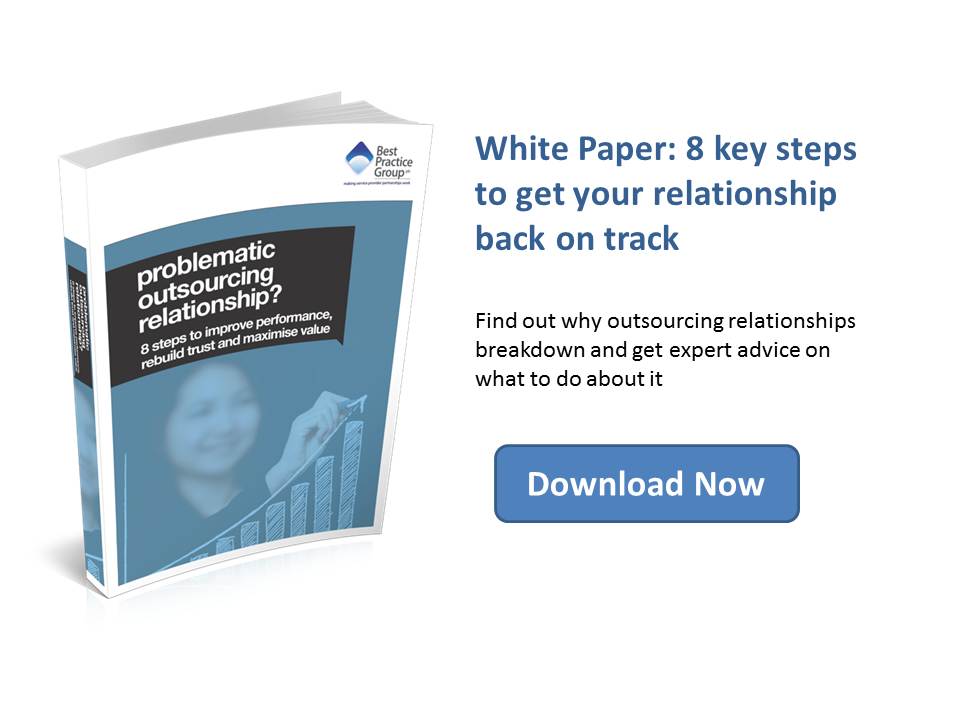
Much has been written about Serco of late. It’s an interesting story for the news media, and those in the outsourcing world, because it’s a tale of success and loss, legal issues and leadership changes alongside the question of whether recovery from such a position is even truly possible. We have already written a number of articles on the subject but because we are dedicated to offering a ‘lessons learned’ facility through our content we felt that an even more forensic view was warranted – one that investigated the meteoric rise of the company, the lean years and how the man currently at the helm of the Serco ship intends to turn things around.
To these ends we are producing a set of four in-depth articles on Serco’s rise, fall and potential for the future. This first one provides a little historical background and looks at how this organisation became one of Britain’s biggest companies. The other three will discuss the moment Serco’s troubles started and how things rapidly spiralled out of control; a look at Rupert Soames, the man behind the hopes for the future of the business; and finally a detailed view of what it was like in the hot-seat for those first six months and what Soames discovered that gave him the belief that recovery was possible for the organisation he’d come to save.
From smallish acorns…
In 1929 the Radio Corporation of America decided to spread its wings across the pond with the formation of RCA Services Limited, a UK subsidiary dedicated to supporting the burgeoning cinema industry as it moved from silent movie era into the first talkies. A moderately profitable small division of a massive overseas company, RCA Services Limited dabbled in services for the cinema, television and other sectors until, in the early 1960s the company’s destiny took a turn that was to change it dramatically.
A maintenance contract for the UK’s ballistic missile early warning system at RAF Fylingdales was the start of a whole new RCA. The contract moved on to encompass operating the base’s technical facilities, maintaining a radar base at Orford Ness, an atomic weapons research base in Suffolk and eventually comprehensive support for the entire RAF. More major outsourcing contracts were won throughout the 70s and 80s including the MoDs first ever outsourcing contract in 1984.
The shift from doing to managing
With growth and diversification there came a need to look at what the company did and how it did it. Until this point RCA had been a largely technical organisation, operating, supporting, and administering with specialist expertise. Those in charge came from the sciences and engineering, but by this point the ranks had swollen to 700 employees and it turned out that the skill that they most needed was the talent to efficiently and effectively manage people, to get them to do what was needed. They reinvented themselves as a management organisation and it was this move that catapulted them to new heights.
What’s in a name?
Serco, short for ‘Service Company’, came into existence in 1987 as a result of a management buyout. The timing was fortuitous as governments across the globe were considering the concept that more cost-effective public sector services might be achieved through outsourcing. It seems Serco was in the right place, at the right time, and saw the opportunity to leverage it. The private sector also recognised that outsourcing some of its more mundane or repetitive tasks could free in-house talent to concentrate more productive or profitable endeavours.
Big aspirations
Serco were very successful at opening a lot of doors, and with a reported win-rate of somewhere in the region of 70%, the evidence suggests they had a successful business development formula to support their aspirations. Some competitors preferred to specialise, but Serco seemed to have a more general focus, which, it seems, was exactly what their client-base wanted from them.
Over the next ten years Serco increased its employees ten-fold and its revenues by a factor of thirteen. From Hong Kong to New Zealand and Canada, and from hospitals to prisons and construction projects, Serco had a wide portfolio. Teams worked on projects around the world with a good degree of autonomy and the founding fathers of the business bid for new work back in the UK HQ. Business was very good.
Six years later, in 2005, revenues had jumped to £2.2bn, and the positivity of management with Chris Hyman at the helm, appeared to steer a very successful financial path.
And, by March 2013, shortly before their fortunes took a turn for the worse, they had more than doubled again with revenues of £4.9bn.
The fragility of success
For those who consider Serco such an innovative champion of the outsourcing sector, to fall so far, so quickly, shocked many. But the on-going reports about Serco seem to indicate that the challenges they faced from May 2013 had been brewing for some time. Within an organisation that it was stated stood out because of its pride in its strong moral compass the view was that there was an increasing gap between word and action which ate away at the foundations of credibility the organisation had previously commanded. So when the tagging scandal broke it didn’t take much digging to uncover a list of questionable decisions that had seemingly contributed to Serco’s fall from favour.
Discover how Serco’s challenges unfolded in the next instalment…


